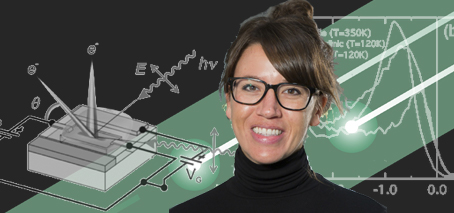
Dr Julie Karel
Dr Julie Karel conducts research at the intersection of materials science and condensed matter physics to develop new materials for emerging low-energy nanoelectronic and magnetoelectronic devices.
Originally from the US, Julie developed new thermal interface materials to improve mobile-device performance at Intel, and was a postdoctoral researcher at the Max Planck Institute in Germany.
In materials design, Julie uses complete structural disorder to modify the magnetic and electronic properties of materials, and uses ionic liquid gating to drive materials into novel, non-equilibrium electronic and magnetic states. The resultant properties are probed through electronic and magneto-transport measurements.
Ionic-liquid gating in particular can be used to suppress metal-to-insulator transitions, promote the creation of transparent, conducting oxides and design-field-tuneable, room-temperature multiferroics. The results of this work are applicable in a broad range of areas including spintronics and neuromorphic computing.
At FLEET, Dr Karel works within Research theme 1: topological materials and Enabling Technology B: nano-device fabrication, working closely with both Prof Nagy Valanoor and A/Prof Lan Wang.
- Visit Dr Karel’s lab
- Contact julie.karel@monash.edu

